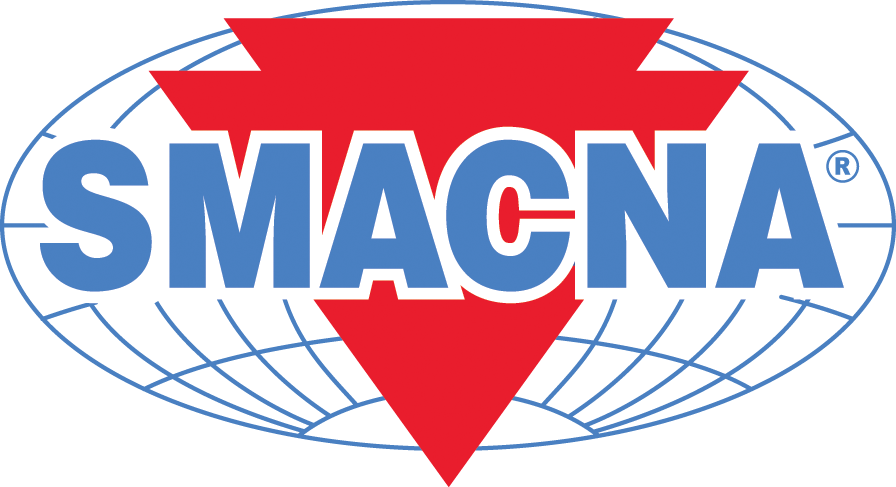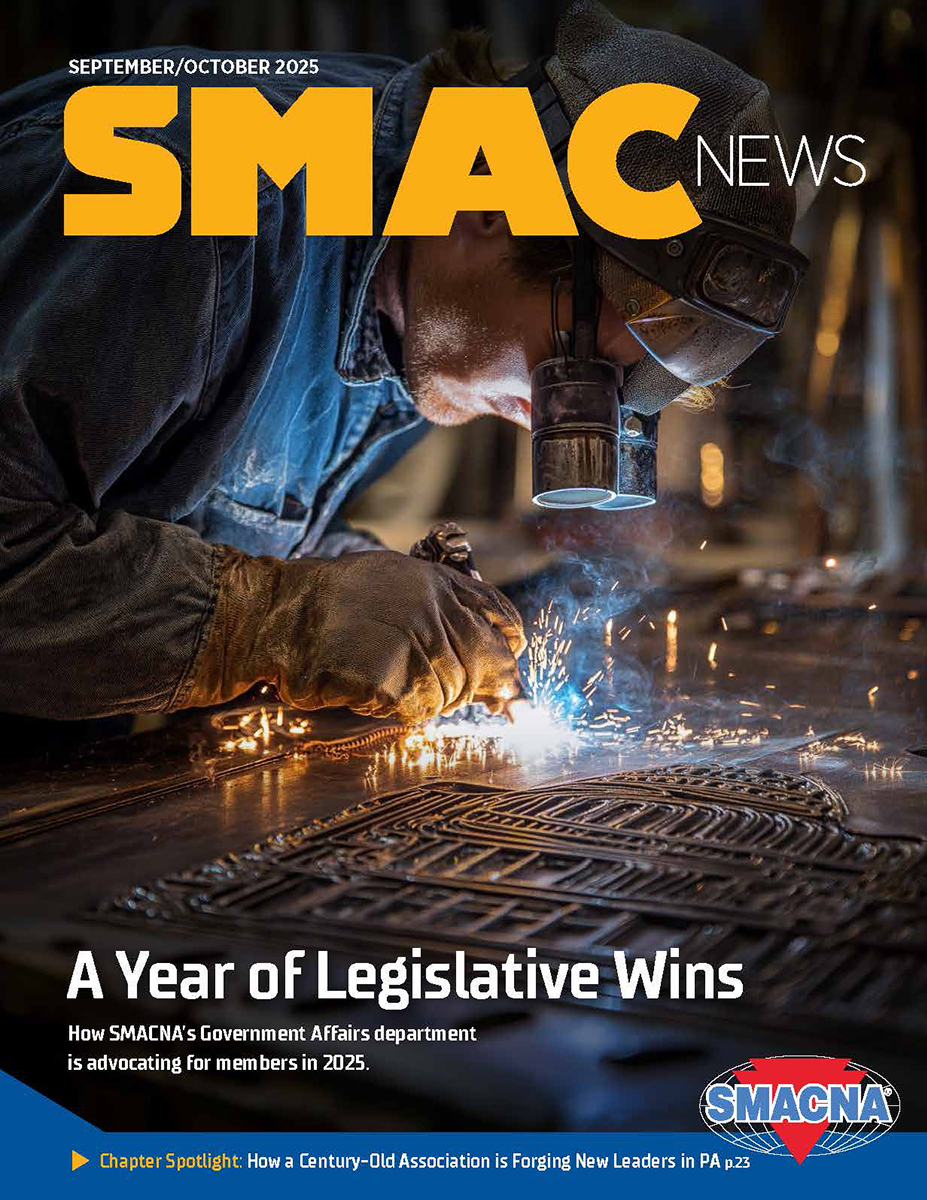Shining Symbol of Strength
Copper walls by General Sheet Metal define IBEW 48’s hall.
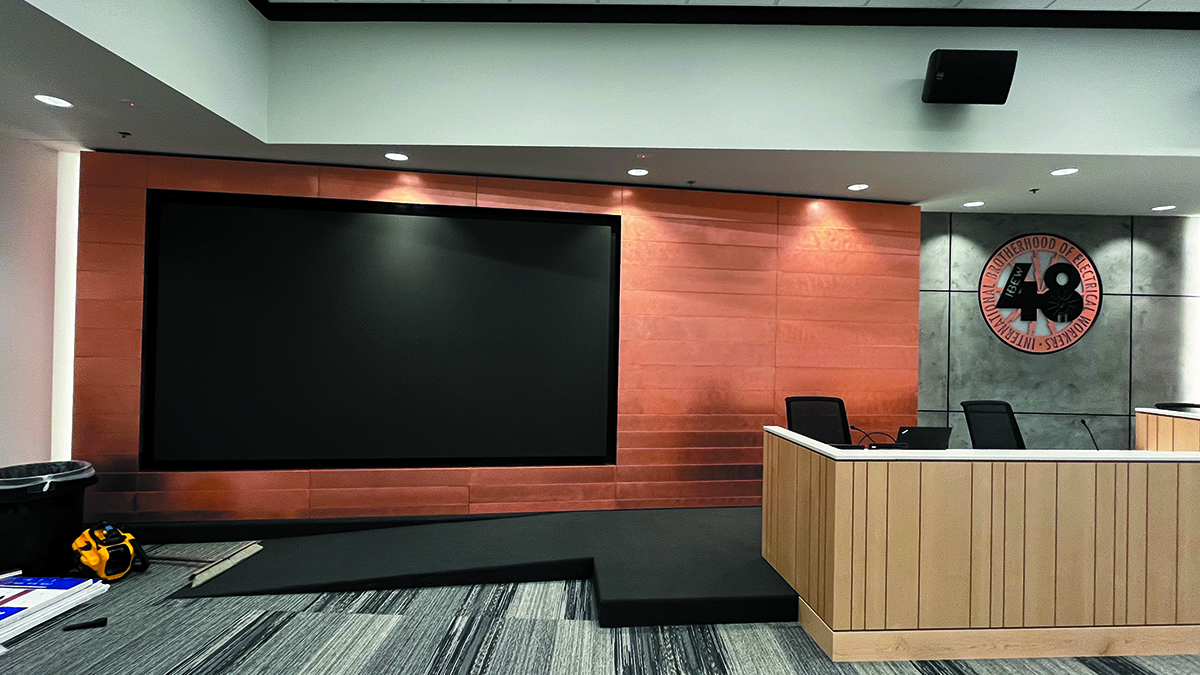 When IBEW 48 upgraded their training center in Portland, Oregon, they chose a unique look, three copper signs with the IBEW logo and three interior walls covered with copper panels. Two 23-foot by 10-foot copper walls accent the hall’s training room, with large TV screens to display lectures. The third wall is in a conference room where IBEW leaders meet with elected officials. “The conference room is their showpiece,” says Shane Crunchie, project manager for General Sheet Metal (GSM) in Clackamas, Oregon. “And its 23 feet by 11 feet copper wall was the architectural focal point. It had to be perfect.”
When IBEW 48 upgraded their training center in Portland, Oregon, they chose a unique look, three copper signs with the IBEW logo and three interior walls covered with copper panels. Two 23-foot by 10-foot copper walls accent the hall’s training room, with large TV screens to display lectures. The third wall is in a conference room where IBEW leaders meet with elected officials. “The conference room is their showpiece,” says Shane Crunchie, project manager for General Sheet Metal (GSM) in Clackamas, Oregon. “And its 23 feet by 11 feet copper wall was the architectural focal point. It had to be perfect.”
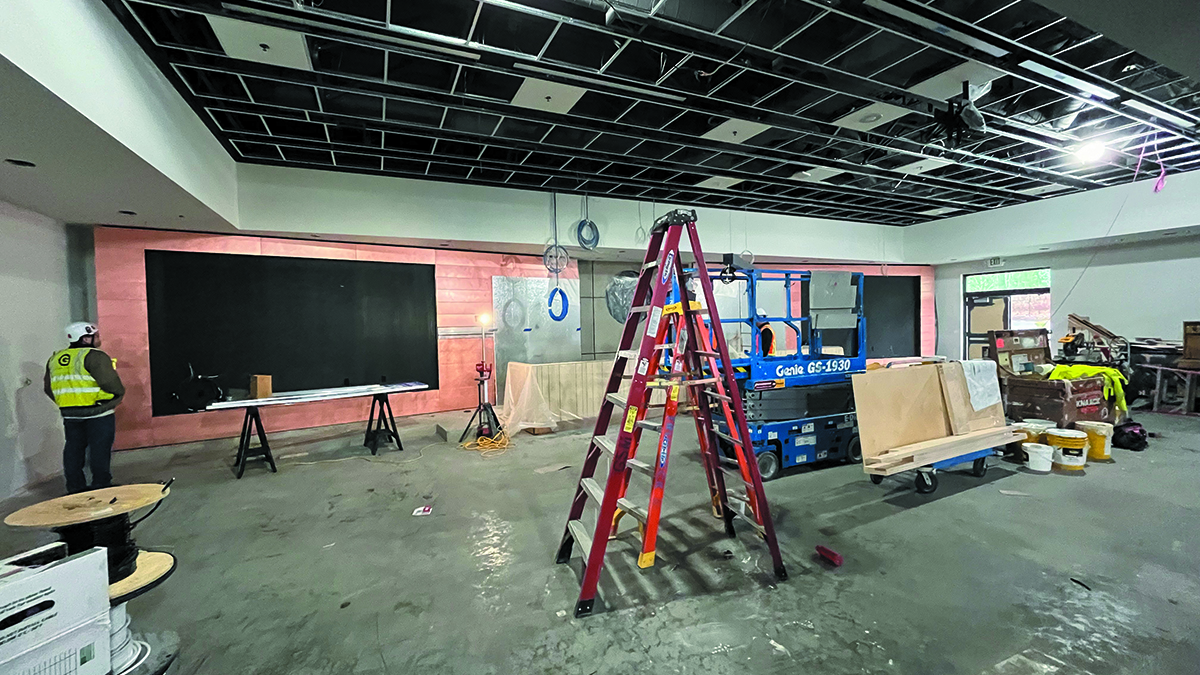
The architect’s original plan suggested 16-ounce copper, which concerned GSM. “We worried that 16-ounce wouldn't hold up over time in a room with people walking by the wall and bumping into it,” Crunchie says. Early in the design process, which started around May 2023, GSM recommended moving to a more durable 48-ounce copper. GSM also designed the custom support structure for the panels. “There's an aluminum clip system behind the copper. The finished copper is glued to aluminum panels, and they're hung in sections. Wherever we had aluminum panel joints, we glued a piece of copper in place in the field.
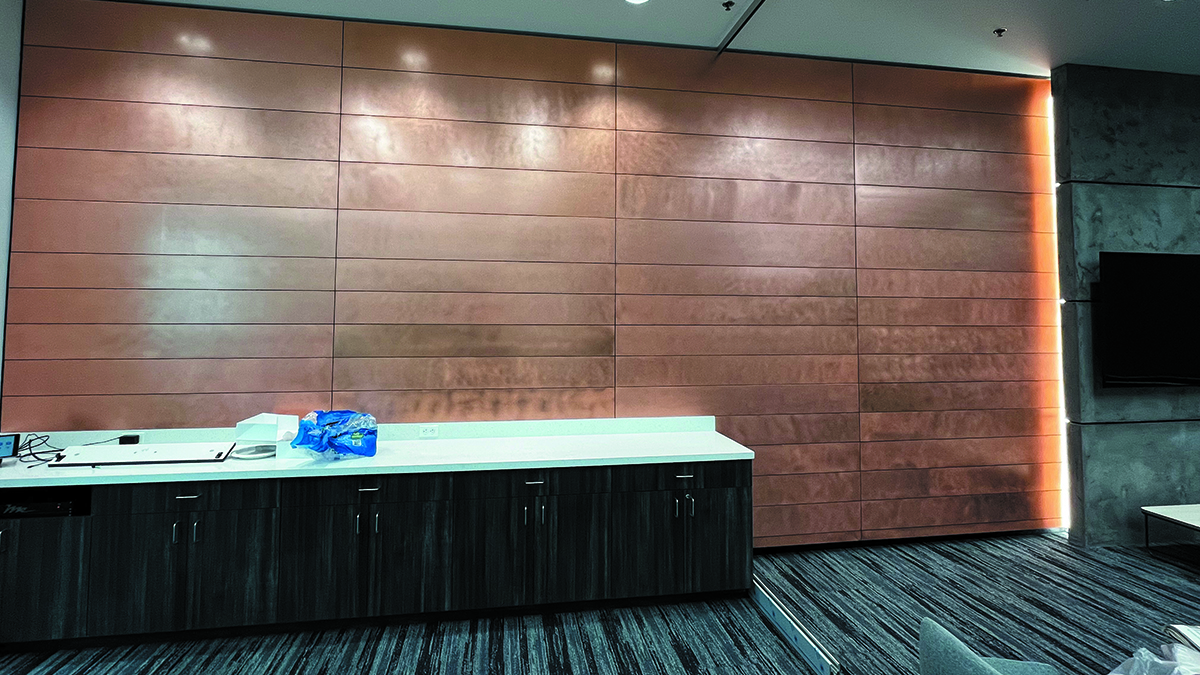
The green patina that forms when copper is exposed to air stabilizes the copper chemically, making it easier to handle. “Copper starts to oxidize almost immediately after you sand it,” Crunchie says. “But in the submittal process we learned that IBEW 48 didn't want the patina finish. They wanted to see the brightness of the copper. That created a level of complexity for the project because of the finishing technique.” The owners also wanted a hand-sanded finish to bring out the metal’s natural color variegation. “You had to finish it very carefully to get it to work.”
GSM worked closely with the customer throughout the design process. “We did multiple phases where we started out with various samples with patina,” Crunchie says. “That’s when we discovered their desire for a bright finish. We produced more samples with the bright finish with appropriate clear coat.” Before starting production, GSM fabricated a full-sized demonstration panel for the owner’s approval. “When we brought out our first panel, we hung it and did our first in place inspection before we went further down the road. The client was in lockstep every step of the way. We always try to make sure there are no surprises.”
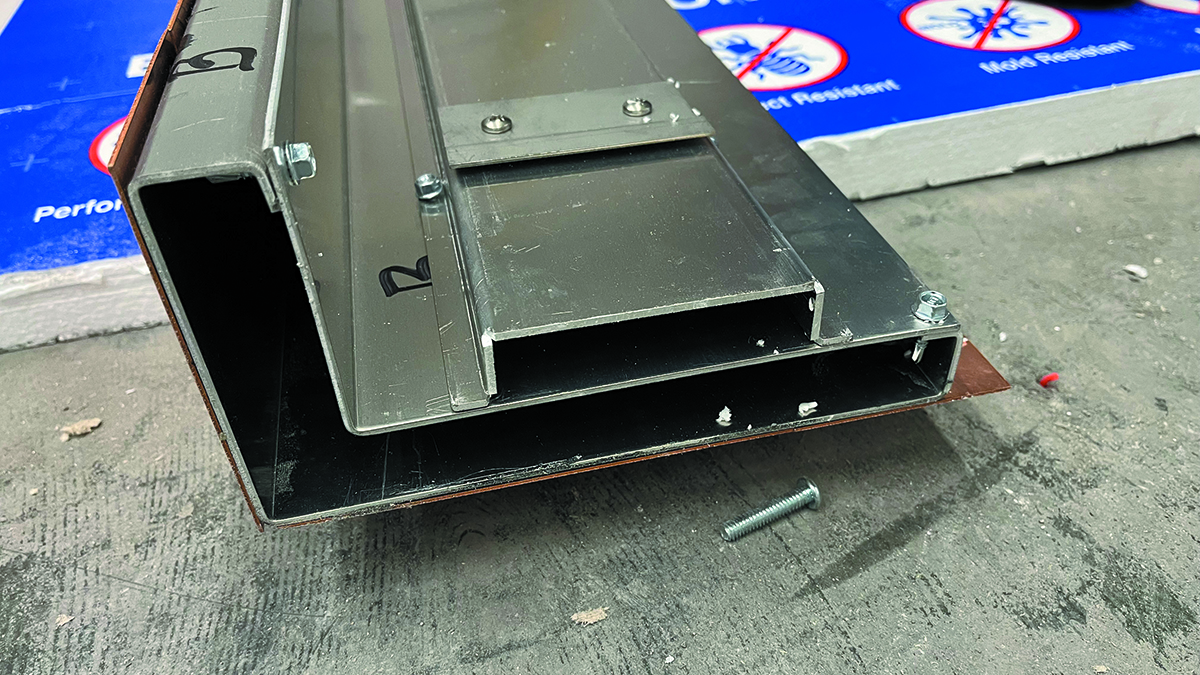
GSM developed a quick process for finishing the panels because the clear coat had to be applied while the copper was freshly sanded. “We set up equipment specifically for this project,” Crunchie says. “Anytime you're doing that, I would advise that you spend the money on what you need and be prepared to make adjustments mid-process to your plan, fabrication or installation method based on something that nobody saw earlier in the process.”
The team did the preliminary sanding in the open shop, then wrapped each piece in brown paper for moving to the coating tent. Throughout the project, other teams were fabricating duct in different parts of the busy GSM shop, so the coating tent was pressurized to mitigate dust. “We had a four-step cleaning process before we were able to apply the coating to the panels,” Crunchie says. “Finishing the panels was a white-glove process, and everybody had to be trained and brought up to speed.” Only experienced people touched the sanded copper. “You have to have a group of people who know how to navigate the different variables, because sometimes you're learning in real time,” he says. In this case, “a single fingerprint could cause a chemical reaction on the face of the copper that would create a blemish.” The clear coat was allowed to dry and harden before the team mounted the copper onto the aluminum panels.
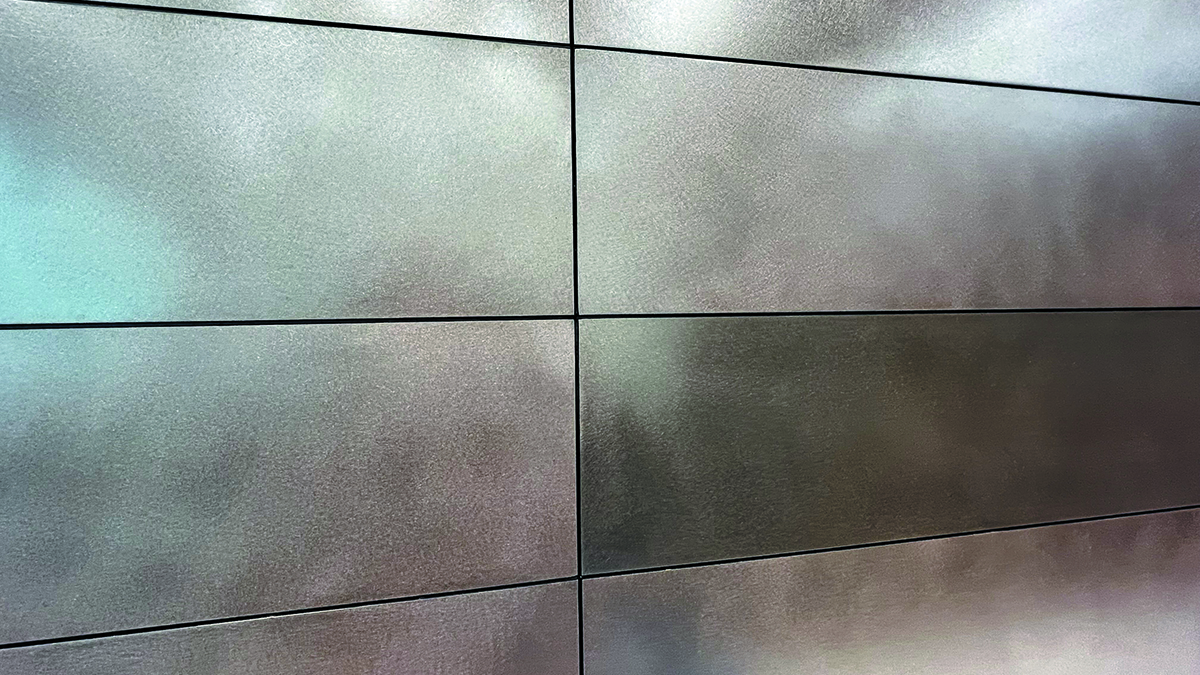
The copper walls were the most technically challenging part of the project, but GSM also installed roofing panels, gutters, downspouts and a stainless-steel rail.
The company fabricated everything except the roofing panels in their own shop. The project required 2,887 pounds of 48-ounce copper sheet, 2,432 pounds of 5052 aluminum and 200 pounds of stainless steel. “It was labor-intensive,” Crunchie says. The $250,000 project ran from July 2023 through February 2024 and brought GSM 600 work hours in the shop and another 600 work hours in the field for a total of 1,200 work hours.
"Ultimately, the client was very happy with us, and the general contractor was very happy with us,” Crunchie says. “They said they couldn’t have hired anybody else to do this project.”
Published: October 21, 2025
IN THIS ISSUE
A Year of Legislative Wins
How SMACNA’s Government Affairs department is advocating for members in 2025.
Big Build, Bigger Challenge
Welsch Heating and Cooling delivers energy efficiency and architectural style on one of St. Louis’s largest residential projects.
Chapter Spotlight: PHILADELPHIA - How a Century-Old Association is Forging New Leaders
SMCA is cultivating young leadership, strengthening labor ties and expanding educational programs to keep Philadelphia’s sheet metal industry strong, sustainable and future-ready.
Construction Tax Planning Under the One Big Beautiful Bill
The One Big Beautiful Bill Act (OBBBA), a sweeping 2025 tax reform package, introduces wide-ranging changes to federal tax policy. While it may appear broadly applicable across industries, its impact on construction is direct and substantial.
Driving Fabrication Innovation
Dynamic Systems thrives by delivering mechanical construction precision through advanced technologies and streamlined digital workflows.
Fifth Circuit Finds NLRB Structure Likely Unconstitutional
On Aug. 19, the U.S. Court of Appeals for the Fifth Circuit halted unfair labor practice proceedings against three employers, most notably SpaceX, before the National Labor Relations Board (NLRB).
How Do Contractors Turn Policy Into Progress?
Contractors and SMACNA staff know advocacy matters. When members get involved, our voices are heard and we shape policies that protect and grow our industry.
How Getting Involved Can Make a Big Difference
SMACNA's President discusses the importance of engaging with lawmakers and reflects on his term.
Latest SMACNA Publications
Explore SMACNA’s latest publications with insights on BIM and IP, practical resources to help contractors improve projects, protect their businesses, and stay ahead.
More Than Just Another Office Project
SMACNA member Dee Cramer was hired to perform HVAC construction on a corporate campus built to harmonize with the environment.
Shining Symbol of Strength
Copper walls by General Sheet Metal define IBEW 48’s hall.
SMACNA’s Legacy of Government Relations
SMACNA's CEO discusses the significant role government relations have always played at SMACNA and details his own interaction with our team on the Hill.
The Majority of SMACNA Members Need a CTO
It’s no secret that our industry has seen a rapid digital transformation over the past two decades. From BIM and ERP systems to robotic layout and cloud project management, today’s contractors and fabricators have access to powerful tools.
Welcome New SMACNA Members
